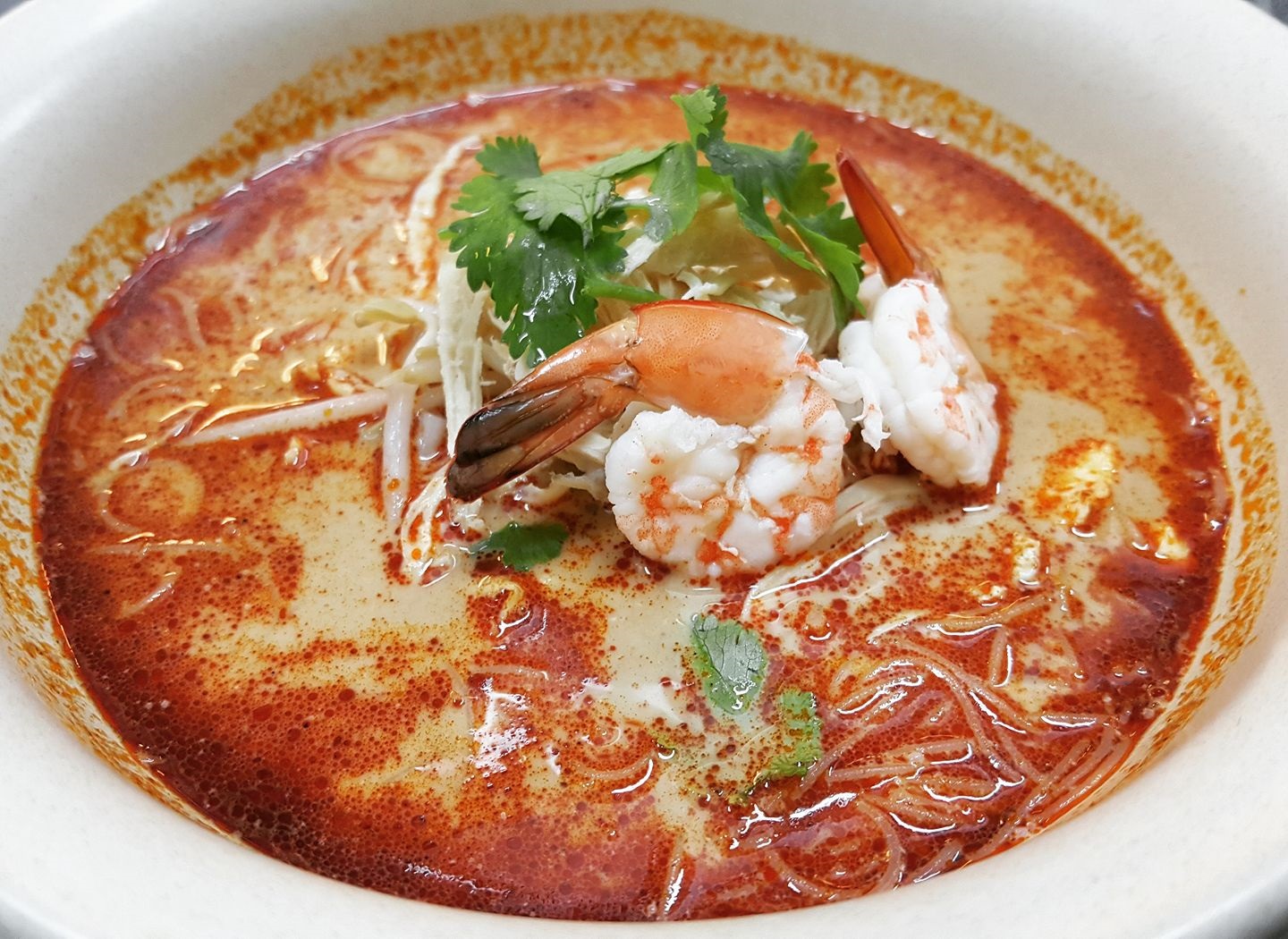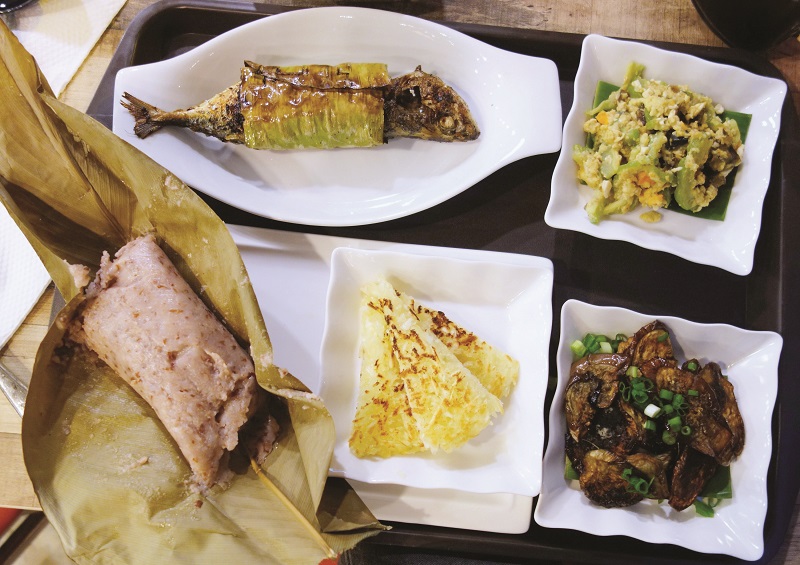
SeChangkir's Sarawak laksa. (Photo: Sechangkir)
Parts of Malaysia are foreign to the average city dweller, and the remote hinterland of Sarawak is one such place. It wasn’t until 1945 when Tom Harrisson parachuted into a blank spot on the map, behind Japanese enemy lines, that the Kelabit highlands and the entire Bario ecosystem became well known to the outside world. There are many indigenous groups with rich traditions who inhabit the vastness of Borneo that remain unfamiliar to most Malaysians.
I ate a lot of lubak, soft-boiled rice packed into leaves, carried in the rucksack and eaten on long hikes with chilli salt in the Sarawak highlands. The iodised salt came from natural salt springs that allowed the interior peoples to remain self-sufficient, thereby avoiding coastal trade for essential iodine.
To me, lubak was like Tolkienian lembas, the elven waybread that nourished Frodo Baggins and Sam Gamgee on their long, lonely journey into the gloom of Mordor in The Lord of the Rings. And so I was not more than a little chuffed to discover Sarawakian indigenous food in my backyard, so to speak.
Indigenous food is not glamorous or elaborate, but simple, nourishing and earthy. It is practical and balanced, the sort of diet modern nutritionists would prescribe for optimal health — with plenty of exercise from the manual labour of planting and harvesting fields or hunting in the forests.
Depot Pub and Restaurant
There is a grittiness, a frontier-town feel, with the requisite dim lighting, to Depot Pub and Restaurant, hidden in a corner of Kelana Jaya. Cindy, a Lun Bawang from Lawas, runs the place with a nominal menu and plenty of beer. On weekends, she cooks native food for the Sarawakian community who know about the place.
It is how I found myself with a meal of rice wrapped in leaves and a panoply of native food, none of which was on the menu. There was wild boar soup, terung pipit cooked with chilli and ikan bilis, chicken gizzards (I declined to try the chopped pork lungs), mushroom porridge, kacang ma and tuak (rice wine of varying potency, depending on preparation).
Home cooked — without any processed ingredients or food enhancers — and presented simply, the food was honest and straightforward, with strong flavours and undisguised textures.
Kacang ma, adapted from Sarawak Chinese communities, uses tuak, ginger and herbs, while the wild boar soup was gingery and salty, to be taken with lubak, soft, yielding and fragrant, depending on the leaves it has been wrapped in.
The menu varies weekly, depending on what’s in the market, and price depends on what’s available.
Tuak costs RM9 per shot. With little, if any added sugar, nevertheless, this is the sweet taste of home to the Sarawakians who come here on weekends.
SeChangkir
Gerald Yahya Urud, a Kelabit from Limbang and the proprietor of SeChangkir café, wants to introduce indigenous highland food to KL city residents. The café carries a mixed menu with a Western bias, and a few local items, including Sarawak Laksa. On Fridays and Saturdays, Gerald’s sister cooks the Highlands special set (RM20).
Components of the set vary weekly, but as a base, there is lubak Adan (Bario highland rice) wrapped in leaves from the highlands, with vegetables, a meat (fish or chicken, the café being pork-free), a soup, dessert and a drink.
The highlight is the red rice cooked until soft and almost pudding-like, rather than the accompaniments. Bario rice has a nuanced flavour and subtle texture, unlike lowland rice. I had it with grilled ikan kembong, bittergourd slices cooked with three egg combination and deep-fried brinjal slices. Dessert was fluffy sweet tapioca cake.

On another occasion, the accompaniments were boiled jackfruit seeds and shredded tapioca leaves, so it depends.
Home cooked, with nothing fancy, the food captures the straightforward spirit of the inland indigenous people, using locally available produce and simple cooking techniques, depending on natural flavours and tastes to represent themselves.
The cakes on display are house-baked by Gerald’s wife, emphasising the family nature of the business. Eventually, more Sarawak dishes will be introduced. The café is still new, and it’s bringing a taste of the remote Sarawak highlands to the big city.
Depot Pub And Restaurant, 63 ground floor, Zentih Corporate Park, Jalan SS7/26, SS7, PJ. 012 871 1712. Tue-Sat, 4pm-midnight; Sun, 1pm-midnight.
SeChangkir, 27 Jalan Tun Mohd Fuad 3, TTDI. 03 7732 1142. Mon-Sat, 10am-10pm.
This article first appeared on May 21, 2018 in The Edge Malaysia.


